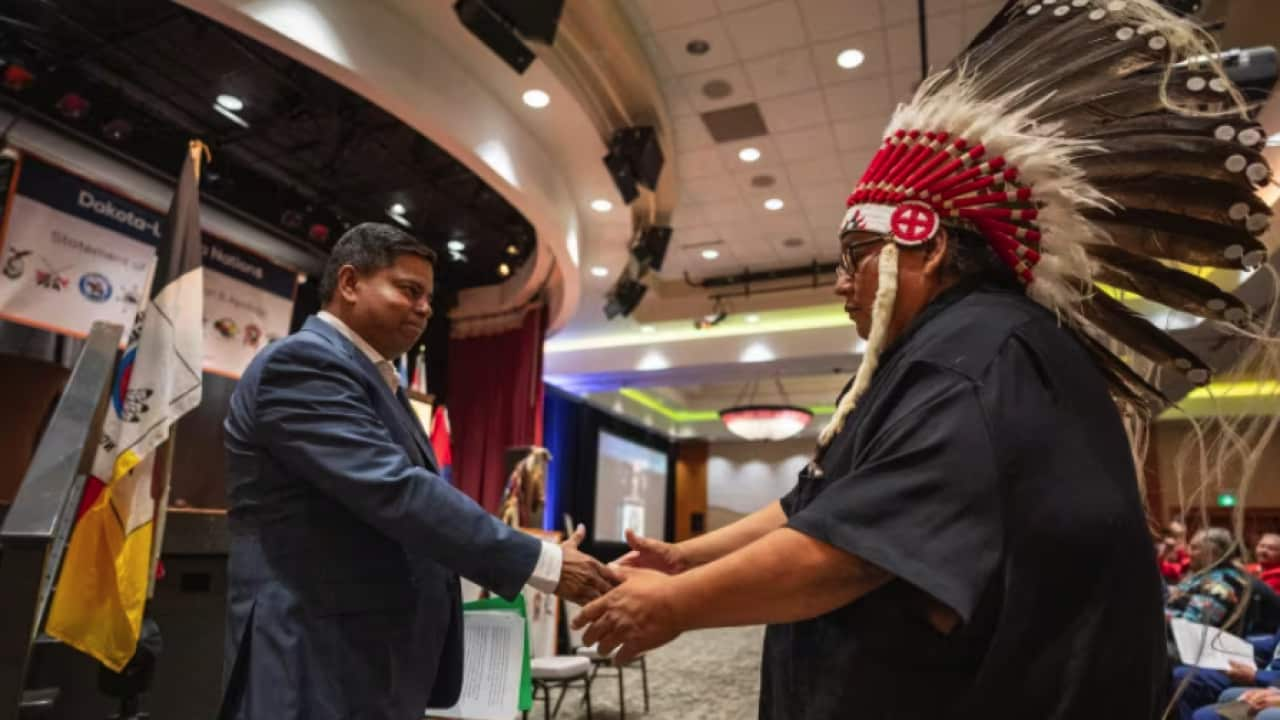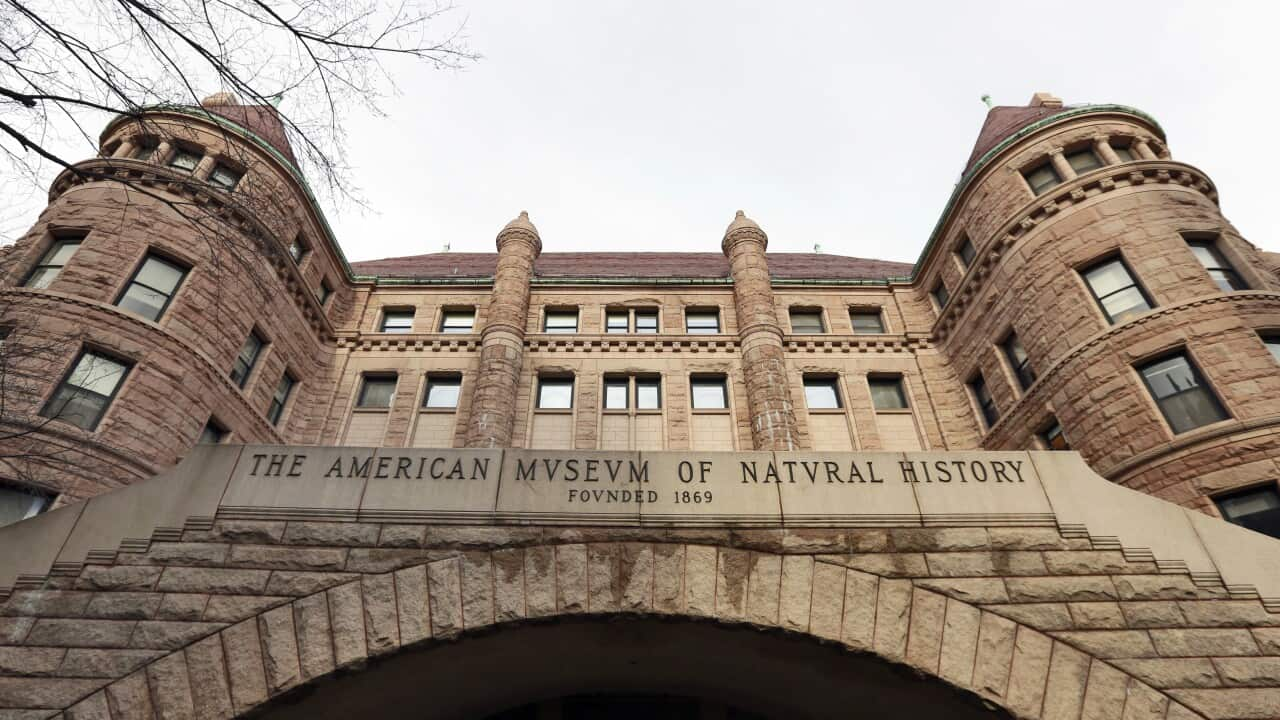In an official ceremony with over 500 Elders, leaders and other First Nations people from across the North American plains, the Canadian government said, 'we are sorry' for the historic mistreatment they endured and their exclusion from treaty.
Canada designated 'refugee' titles to nine Dakota and Lakota nations, due to many Dakota and Lakota migrating from what is now the United States to escape oppression.
Even though the state did not recognise these groups as First Nations groups, denying them any right to treaty negtiations, they were still subject to racist policies like removal of children to residential schools.

North American Indian children in their dormitory at a Canadian boarding school, 1950. Credit: Hulton Archive/Getty Images
"We hope we can remove this stain and begin the work of healing," he said.
Longtime Whitecap Chief Darcy Bear said it had been a long journey, but that he was glad the day had finally arrived.
"Our ancestors have fought for this recognition."
"We were treated differently.… We were left out," Bear told CBC News.
Claims put forward by the Dakota and Lakota nations in the 1870s and again in 2007 to be included in the existing treaties were rejected.
This happened even though many Dakota communities fought for the British against the United States during the War of 1812.
Saskatoon Tribal Council Chief Mark Arcand said at the event that this should have never happened, and that the system must change.
"All Canadians need to be a part of the solution."
Federation of Sovereign Indigenous Nations vice-chief Ally Bear paid homage to her elders in the audience, as well as those who fought for justice before her but had passed before seeing this day.
"Today is a huge day and a huge step forward," Bear said.
"We aren't going anywhere."











